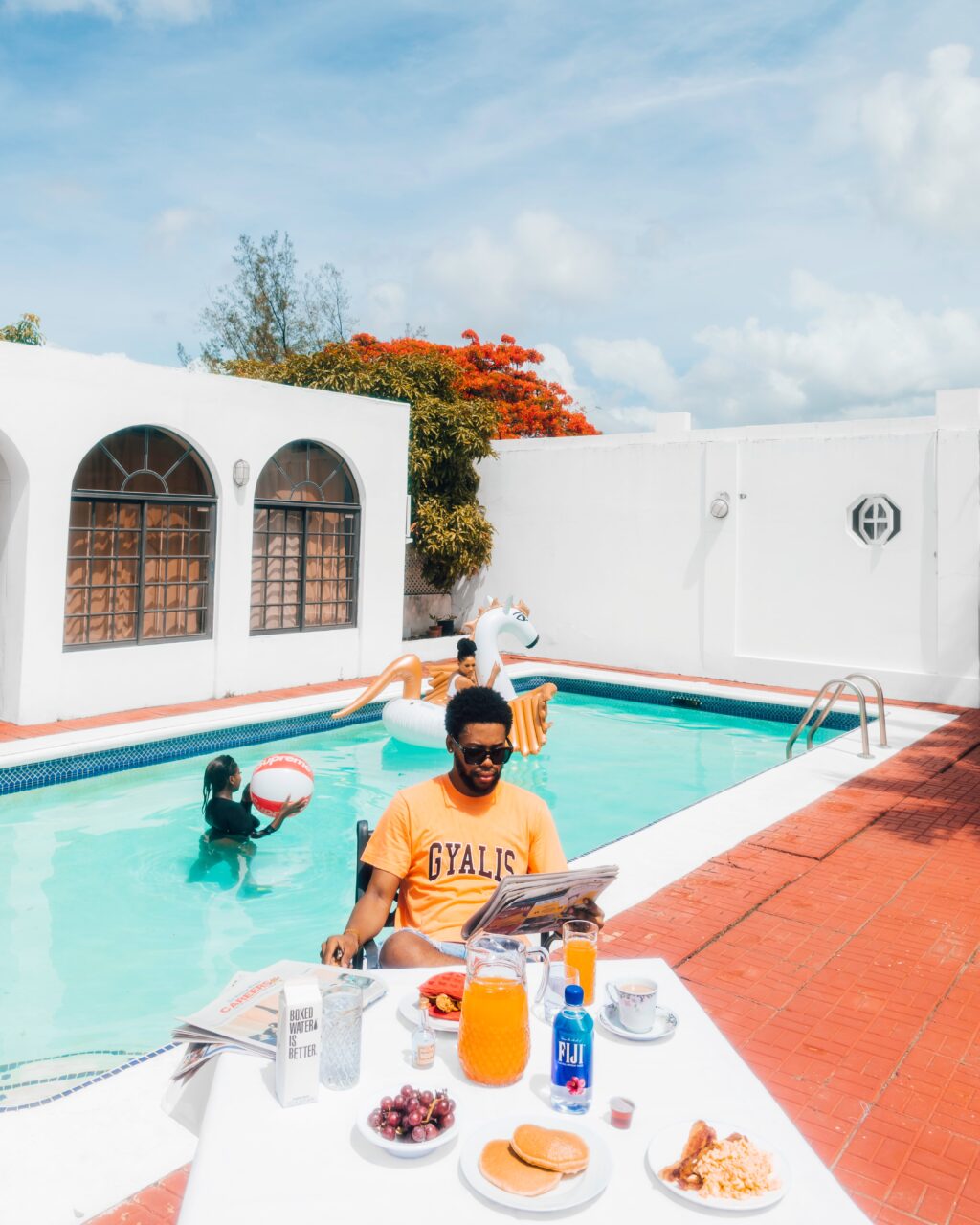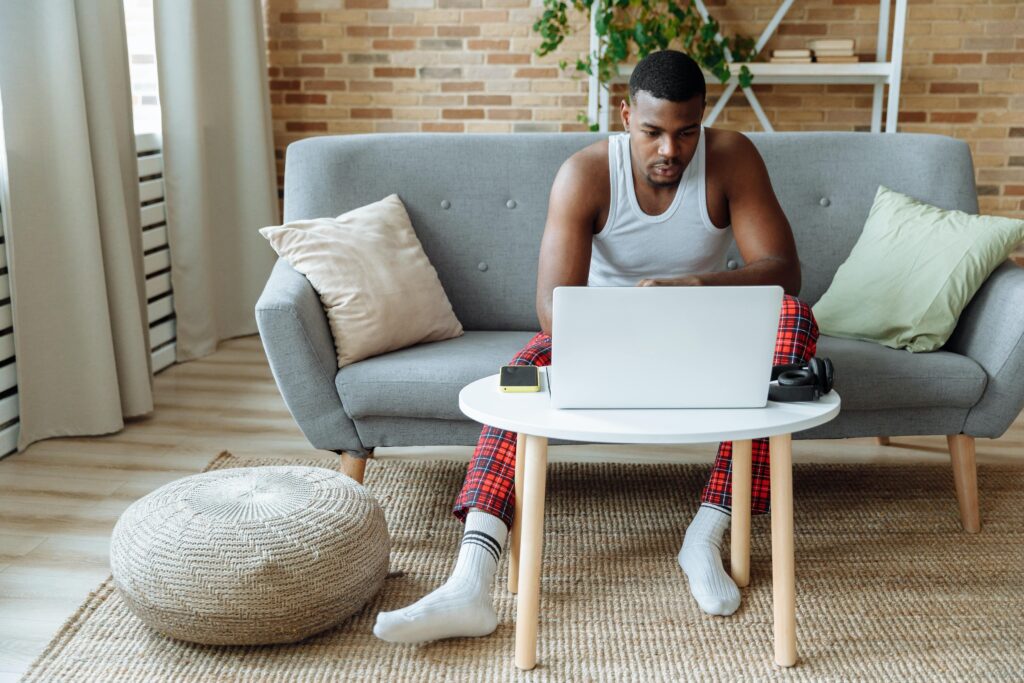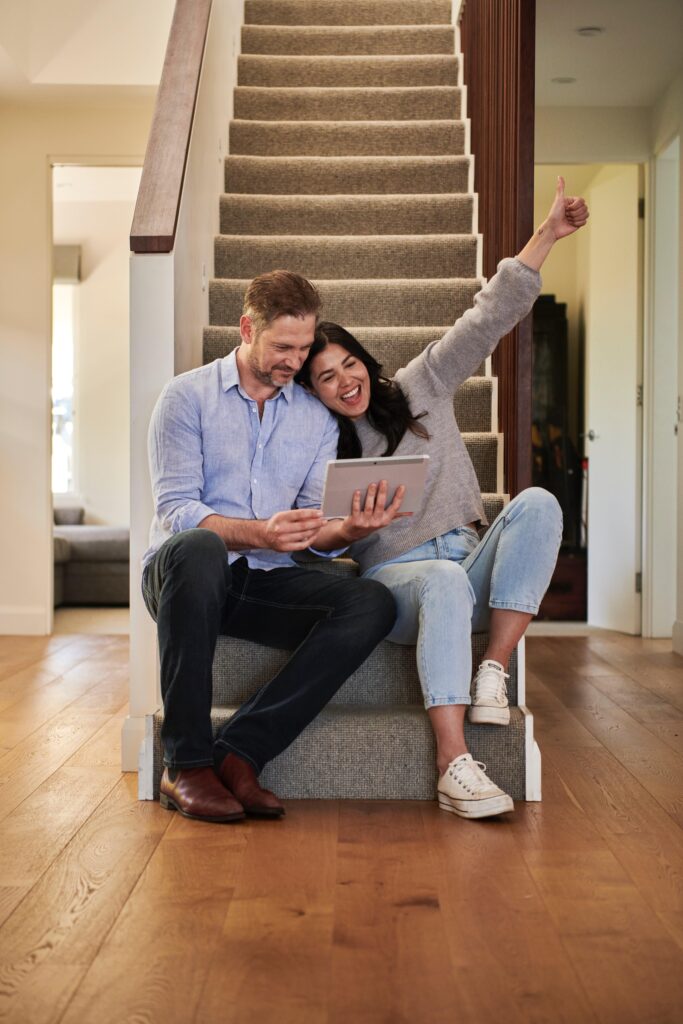People overseas can buy property in Jamaica.
Bright sunshine, tropical climate, good vibes, tasty food…Jamaica is a great place to call home.
But, those aren’t the only benefits of buying property in Jamaica.
You’ll also benefit from lower property prices when compared to larger countries such as the US and Canada.
Furthermore, the Government of Jamaica (GOJ) is committed to making Jamaica an attractive country for overseas investors.
The odds are in your favour!
You’re probably uncertain about what a foreigner needs to buy a property in Jamaica.
Here are eight things you should consider.
8 Things To Consider When Buying A Property in Jamaica As A Foreigner
1. The Location
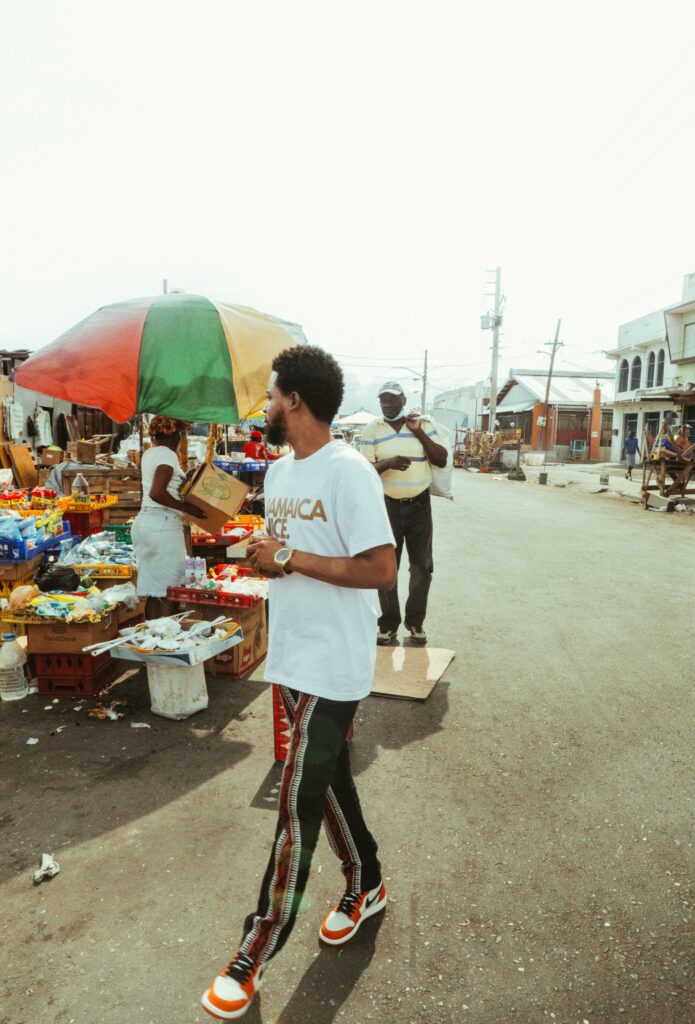
A property in Jamaica can be a good investment if you choose the location wisely.
Montego Bay, St. Ann, St. Mary, and Portland are some of the best places for vacation properties.
Houses in prominent corporate and suburban areas in Kingston and St. Andrew are also good investments.
The property you choose ultimately depends on your desired lifestyle and the amount of money you want to invest.
Ask yourself these questions:
- Will you be living in the house when you’re visiting? If so, what features and amenities are you looking for?
- Do you need to be close to business centres, a major hospital, public transportation, or other family members?
- Do you want to be able to entertain at home and have guests stay-over?
- How much ongoing maintenance do you want to deal with? Are you okay with monthly lawn care, pruning and trimming of trees, paying utility bills?
- What about monthly fees associated with living in a gated community or an apartment?
Think carefully about these questions and any other considerations that matter to you.
Research The Location
Stay in the area for about 6 to 8 weeks before deciding that’s where you want to live. Use this time to get to know the neighbourhood and the people.
You need more information about:
- Crime in the area
- Hotspots to avoid
- General safety guidelines
- Local health clinics
- Nearby doctor’s office
- Supermarkets
- Restaurants
- Other social and service facilities
Be practical and patient and you’ll find what’s right for you.
2. The Timeline
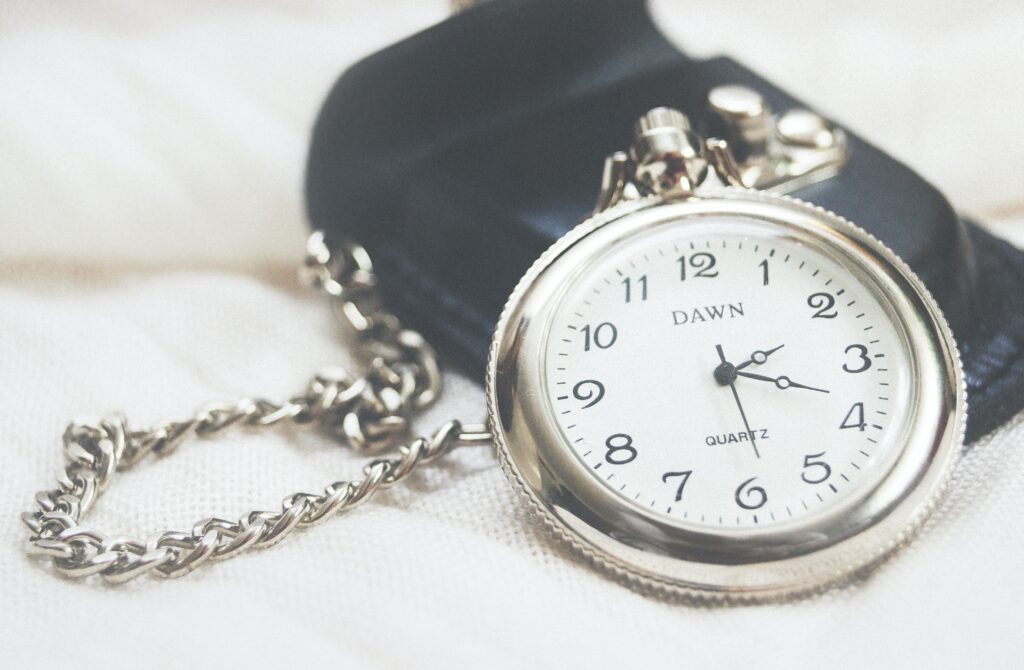
It can take about 150 days to complete the purchase of a residential property in Jamaica. This timeframe doesn’t include the time it takes for once the vendor to accept your offer.
The process involves:
- Registering the transfer of the title and the mortgage
- You making all of the agreed payments
- The construction/handing over
It’s a process that can take more than a year if you’re doing your own construction or waiting on the developer to complete the project (new build).
3. Your Local Team

There are dishonest people who will try to pressure you to pay after a few interactions. Be wary of them.
Don’t hand over your hard-earned money without doing a background check and independent checks. You should also ensure that you’re paying the right person and paying for services or work that has been completed.
A Lawyer
Hiring a lawyer isn’t mandatory for purchasing a house in Jamaica. But, that doesn’t mean you shouldn’t get legal advice from someone locally. An experienced real estate lawyer can guide you through the process and look out for your best interests.
A Property Scout or Buyer’s Agent
Having someone locally who can help you find a house could be useful especially if you want to find a house quickly. You may have a friend or family member who’s able to help. Working with people close to you can be tricky though.
Remember to keep communication clear and professional to avoid misunderstandings. You could probably avoid these challenges altogether by hiring a real estate agent. That means spending more money though. So, carefully weight the pros and cons.
Designer and Contractor
You’ll need people to design and build your house if you’re building a house on land you bought. Some of the people involved in the design and construction of the house include:
- Contractor
- Developer
- Architect
- Land surveyor
- Quantity surveyor
Always independently verify the credentials of any professional you’re considering. Check their reputation before hiring them, sharing sensitive information, signing any contract, or transferring money.
Avoid making large upfront payments, say more than 20% of the total fee, where possible. Instead, pay in instalments based on agreed milestones and deliverables.
Also, ask about their experience working with people who’re overseas. Verify the times they’re available to account for possible differences in time zones.
Reach out to your network for references. Verify their recommendations by:
- Reviewing their social media profiles
- Having video conference calls with them
- Contacting local professional bodies and associations for which they say they’re members
You can hire them if they pass this screening process and you feel comfortable working with them. Feel free to negotiate terms and fees during the hiring process.
4. Fraud

There are risks associated with purchasing a home when you live overseas. You need to be aware of these risks and take the necessary precautions. Here are some tips.
Set Up a Local Bank Account
Set up a local bank account. There should be two signatories on the account: you and your local representative. Having two signatories provides proper checks and balances so that you can monitor what’s happening with your money.
It’s a more tedious way to set up a bank account. But, this structure will prove useful in managing the process and ensuring that the people you hire complete their tasks properly .
You should conduct financial transactions through authorised commercial banks and foreign currency remittance dealers. Check the Bank of Jamaica’s website for a list of these institutions.
Separate Critical Responsibilities
Also, separate the critical responsibilities of your local team where possible. For example, have one person coordinate and follow-up on the progress of the purchase or construction (and send you photos) and ask another person to make payments.
5. The Tax Registration Number (or TRN)

You’ll need a Tax Registration Number (or TRN) to complete the property purchase and open a local bank account. Also, you must provide proof of the source of funds to comply with local anti-money laundering regulations.
You can hire a local attorney to help you with this application process if you don’t have a TRN. The application is usually processed whithin three to four weeks.
The Tax Administration of Jamaica’s (TAJs) website has an online TRN application form. Complete and sign the form and send it by mail to the TAJ. You should also send a copy of a valid form of photo identification notarised by a Notary Public.
A certified translated version is also required if the documents aren’t in English. You can consult a professional translation service in your area or someone with that experience.
You get your TRN via email after your application has been processed. The TRN card can be sent to your overseas address via mail. You could also ask someone to collect it for you at one of TAJ’s offices, but you must send that person with a letter signed by you authorising them to collect it.
6. The House Hunt
Developers usually provide both virtual and in-person tours of new-build construction. Viewing properties remotely is a great way for persons living overseas to screen properties without the hassle of having to travel for every viewing. Developers should also provide prospective purchasers with progress updates as standard practice.
You can hire a buying agent or someone you trust to assist you with these virtual tours. This person should be able to:
- Ask the right questions based on your wants and needs
- Solve any issues
- Get the right support if necessary.
Let that person know the type of property you’re looking for – the ‘must-have’ features, your preferred neighbourhoods, and your deal-breakers. Focus on what really matters (such as location, size, number and size of bedrooms and bathrooms) so that the search is effective.
The virtual tour should be similar to an in-person viewing of the property. The person should go through the house in a way that makes sense so that you can get a feel for the natural flow of the house.
They should keep the camera steady while pointing out special features and possible concerns. This should also be done for the exterior. The lighting and video quality should also be good.
Images of rooms should be from the doorway looking in and include the floor and ceiling as much as possible. Ignore furniture and other clutter and focus on cracks, signs of leaks, or signs of recent repair.
Don’t forget to look for possible deal breakers around the property such as being on a busy street or next to a gully, noisy commercial facility, or poorly maintained structures.
7. The Sales Agreement
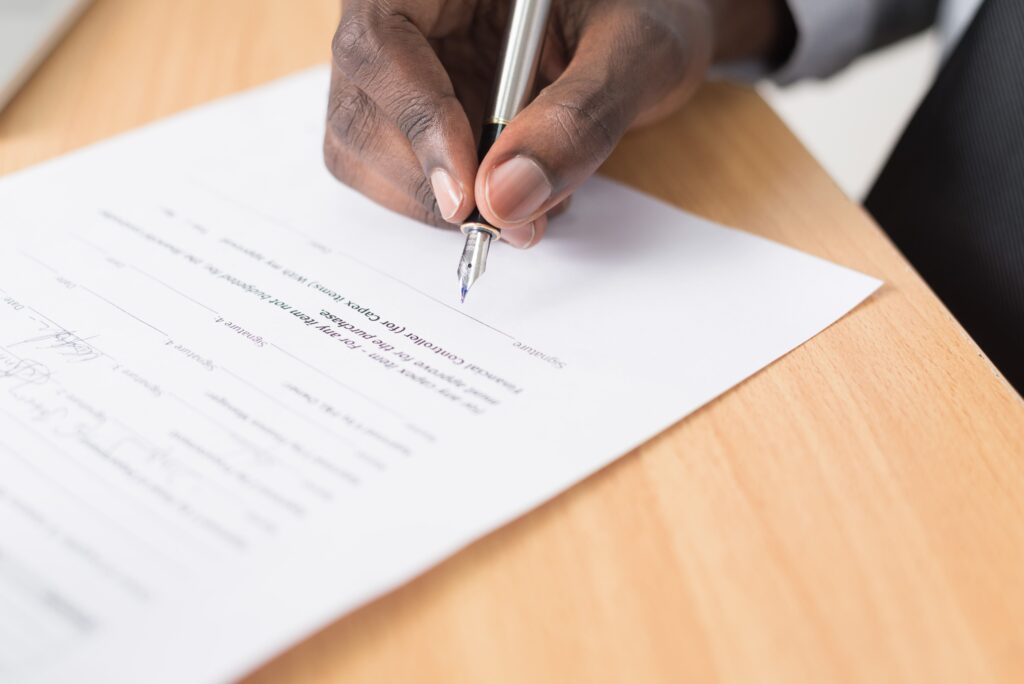
You’re under contract once your offer to purchase the property is accepted by the seller. As the buyer, you could consider lodging a caveat on the property until the transfer is completed to prevent other interests from being registered in first position against the property.
The seller or their lawyer prepares the sales agreement for you to review. You should review the terms of the agreement, conduct a title search, and get a surveyor’s report to verify that there are no:
- Other claims or conflicting interests registered against the property
- Physical encroachments
- Title restrictions
For new construction, request evidence from the developer that he has obtained the requisite approvals and building permits from the Parish Council and the National Environment and Planning Agency (NEPA). You should independently verify this by directly contacting these agencies.
Ensure that you have the appropriate approval reference numbers on hand so that you can use them when contacting these agencies. Also, the Real Estate Board of Jamaica should have the developer and your project registered. The developer’s business should also be registered at the Companies Office of Jamaica (COJ).
For private sales, consider conducting a background check to verify that the seller is the actual owner of the property or is duly authorised by the owner or estate to sell.
This could save you from:
- Buying a property with no title
- Dealing with, or paying, the wrong person
- Buying a property with liens or caveats that you have to pay to remove or that prevent you from using the property.
You’re required to pay the agreed deposit as well as your share of the registration, transfer taxes, and stamp duty fees associated with the transaction once you and the vendor have signed the sales agreement.
The seller’s attorney would then apply to the Office of the Registrar of Titles to register the transaction and pay the related taxes and fees. The seller also provides you with a current property tax certificate and proof that all utilities have been paid.
8. Closing The Deal
The cost to buy a house in Jamaica is about five percent of the purchase price of the property. These costs include:
- Legal fees
- Stamp duty
- Transfer tax
- Registration fees
- ales agreement preparation
- Mortgage bank fees
- Valuation report
- Surveyor’s identification report
This doesn’t include the commission for the buying agent (optional) which is negotiable and ranges from three to five percent of the purchase price.
Payments are usually made in agreed instalments for cash purchases. It can take about 60 days to complete the transaction after the application is made to the Registrar of Titles. This depends on when the requisite documents are provided by either party, the payment schedule, and whether there are any issues with the title or property.
The title is transferred when the sales process is complete. But, the process can take an additional three months if the purchase is with a mortgage.
The mortgage provider will request a market valuation report which is an independent assessment of the market value of the property and other documents specific to their process. This lending institution will likely allow you to borrow funds based on the lower figure – the purchase price or the market value. You’ll also be required to pay mortgage fees, insurance, and other processing charges.
The seller will get a letter of commitment to facilitate the transfer of ownership when the requisite documents and receipt of payment have been provided. Also, the seller will notify the mortgage provider and send over the requisite documents so that your lender can then register the mortgage on the title and disburse the balance of the purchase price to the seller when the transfer of ownership is complete.
That’s it! Transfer of ownership means that it’s time to collect your keys and move into your new home!
Final Words
Buying property is a good long-term investment. Home prices in Jamaica are very attractive and it’s easy for persons overseas to buy a home in Jamaica. The tropical climate, friendly people, diverse culture, and stable real estate market make Jamaica one of the best places in the world to call home.
Identify trustworthy people who can help you find the property of your dreams whether it’s a luxury villa with high end amenities like beach and golf court access, a remote getaway to disconnect from the modern world and live in harmony with nature, or that house in the city near to the best restaurants and popular events.
Do your due diligence, sign on the dotted line, and book that plane ticket. Make Jamaica your home.
What challenges are you having with buying a property in Jamaica from overseas? Let me know in the comments below.
